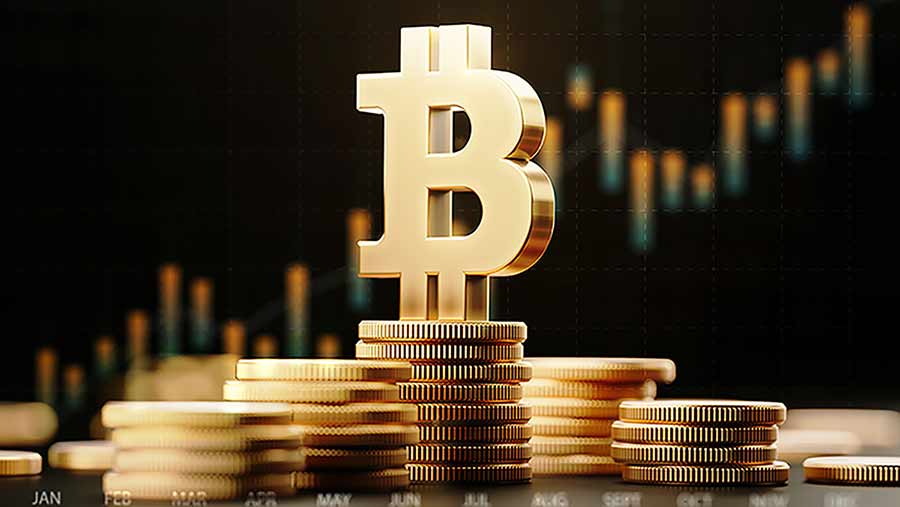General / In The News
Fool’s Gold? Reviewing Gordon Brown’s Alleged Mistake
Suboptimal market timing isn’t the whole story.
Look, if you know me, you know I loathe pretty much all politicians, regardless of party or creed. The vast majority are self-interested, unprincipled, power-hungry leeches that suck goodness, joy and money from society. That is true regardless of country or party affiliation.
And yet, please, can we all lay off Gordon Brown, the UK’s former Chancellor of the Exchequer (1997 – 2007) and Prime Minister (2007 – 2010)?
Not just because of the glass eye and family tragedy, but because selling Britain’s gold reserves 25 years ago didn’t actually destroy public finances and wasn’t the foul-up people still argue it was to this day? The reasoning was sound, the naysaying is an epic case of ignoring the counterfactual—and the UK Treasury’s health is actually fine.
Any time bad news erupts from His Majesty’s Treasury, you can bank on headlines bringing up Brown’s decision to sell over half of Britain’s gold reserves between May 1999 and 2002, which we now know was a relative low for the shiny yellow metal and preceded a monster run. Just today, headlines tied it to fresh estimates of the losses the Treasury will have to cover on the Bank of England’s (BoE) leftover bond portfolio from quantitative easing. The implication: Had Brown not sold the family silver at a market bottom, monetary policy would have been sounder and the Treasury wouldn’t have to soak taxpayers to cover any BoE losses. The fact Brown sold the gold at an average of $276 per troy ounce—and that gold now trades over $2,300 per troy ounce—seems enough to prove the point.[i]
Only, it doesn’t—and not just because those BoE “losses” are a fiction—a mere accounting entry. Most of the criticism over the past several years portrays Britain’s gold holdings as some store of national wealth that is both necessary for financial might and solvency and could have been spent on this, that or the other. But that isn’t what gold reserves are for. They aren’t national wealth management. They are currency reserves, a point people seem to understand when it comes to China amassing gold right now, yet ignore when convenient to criticizing the UK.
And here we see Brown’s logic. In 1999, memories of the pound’s 1992 devaluation were fresh. The pain of defending and suddenly discarding its position in the European Exchange Rate Mechanism, a shadow peg to the deutsche mark, still resonated. The Treasury had burned reserves in its initial defense, reducing its total financial assets. Hence, the 1990s were all about restoring reserves and international financial credibility, a successful endeavor.
But Brown saw a flaw: Gold made up a huge chunk of the reserve pile. At the time, he argued gold’s volatility and lack of interest payments made such a large reserve role undesirable. Currency reserves are supposed to be stable, and a commodity prone to big booms and busts isn’t stable. Diversifying into other reserve assets, his theory went, would bring more liquidity and stability while paying interest. All seems sound to us—these are all the same reasons we think long-term investors shouldn’t load up on gold.
This view wasn’t unique at the time. Several other countries held it and sold down their gold reserves, too—they just didn’t pre-announce the move in Parliament and prompt markets to price in the sales beforehand, forcing them to take a discount. Hey, no one is perfect.
But the logic held. A reserve pool should be stable, liquid and deep, not illiquid and subject to giant sentiment swings. Selling at a relative low might look bad in hindsight, but gold has been quite volatile these last 25 years, both booming and busting. That wild ride injects instability into forex reserves, defeating the purpose.
Which brings me to the other problem: ignoring the counterfactual. Meaning, the criticism doesn’t take into account what the Treasury did with the proceeds and whether its overall financial position is better or worse now than it was then. So I looked, and nothing here looks bad? Yes, at the end of 1998, the Treasury owned £4.27 billion in gold and special drawing rights (SDRs, the IMF’s wonky reserve asset). By the end of 2002, that was down to £2.37 billion.[ii] Yet the proceeds were reinvested into liquid securities—currencies, bonds, stocks and even financial derivatives. And over those same four years, HM Treasury’s total financial assets rose more than £21 billion to total just north of £156 billion.[iii] At 2022’s end (the most recent full-year data available), the pile topped £630 billion.[iv]
Meanwhile, for those who love gold and don’t buy Brown’s (and our) logic, the Treasury still has plenty. The volume of its holdings is down from 715 tons when Brown started selling to 310.3 at last year’s end, per the World Gold Council.[v] But the value of the Treasury’s gold holdings is up from just under £4 billion in Q1 1999 (the last reading before Brown announced the sale) to over £16 billion at last year’s end.[vi] Accordingly, gold reserves were 1.56% of UK GDP then and 2.4% now.[vii] And relative to the Treasury’s total financial assets, gold was just under 3% then and is … just under 3% now.
Yes, it could be larger had Brown not sold. But dwelling on gold’s performance between then and now ignores this entire financial tapestry, leading to an errant portrayal of a broke Treasury poking around the corners and sofa cushions for spare change. In reality, its balance sheet is flush, diverse and healthy, with a stable and liquid reserve war chest. Meanwhile, those who lambaste Brown for selling at a low now laud China for buying, a decision that could look equally foolish in another 25 years. All this stuff is speculative and unpredictable, while hindsight is always 20/20.
So no, I still don’t like politicians, and as with all politicians, I have my fair share of criticisms of Brown’s other policies and their second- and third-order effects. But I think it is time to put this particular one to bed.
[i] “Gold: Gordon Brown’s Sale Remains Controversial 20 Years On,” Russell Hotten, BBC News, 5/7/2019. Additional source: FactSet, as of 5/2/2024.
[ii] Source: Office for National Statistics, as of 5/2/2024.
[iii] Ibid.
[iv] Ibid.
[v] See Note i. Additional Source: World Gold Council, as of 5/2/2024.
[vi] Source: World Gold Council and FactSet, as of 5/2/2024. Gold price in GBP on 3/31/1999 and 12/31/2024. Gold volumes converted from tons at the rate of 32,150.7 troy ounces.
[vii] Source: FactSet, as of 5/2/2024.
If you would like to contact the editors responsible for this article, please message MarketMinder directly.
*The content contained in this article represents only the opinions and viewpoints of the Fisher Investments editorial staff.
Get a weekly roundup of our market insights.
Sign up for our weekly e-mail newsletter.

See Our Investment Guides
The world of investing can seem like a giant maze. Fisher Investments has developed several informational and educational guides tackling a variety of investing topics.








